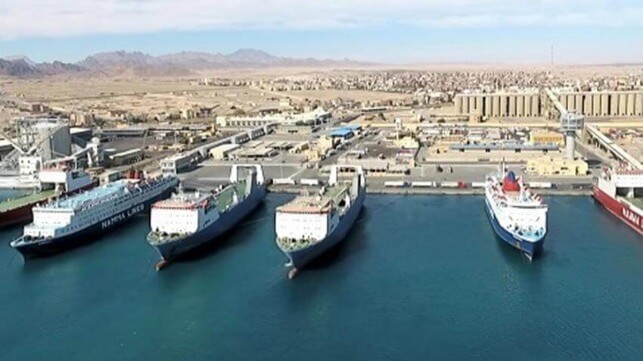Egypt Agrees with AD Ports to Develop Cruise and Cargo at Red Sea Ports

The government of Egypt is continuing its efforts to develop Safaga on the Red Sea into a major international port by entering into two agreements with the UAE’s AD Ports Group. Ill-timed because of the current security problems in the southern Red Sea, the program however is part of Egypt’s long-term plan for the region with Safaga poised to become Egypt’s first internationally operated port servicing the region and to add to building Red Sea cruise tourism.
AD Ports has agreed to develop three cruise terminals in Egypt which it will operate and manage as part of a 15-year concession agreement with the Red Sea Port Authority. The agreement which was approved by the Egyptian parliament was initially on January 5 and a definitive concession agreement is expected to be concluded in the first quarter of 2024.
The agreement calls for AD Ports to invest $3 million in the management and operation of cruise terminals located at Safaga as well as the Hurghada, on the Red Sea, and the resort town of Sharm El Sheikh at the southern end of the Sinai Peninsula. AP Ports will provide new services, improve access for cruise operators, and seek to add new itineraries through the group’s cruise terminal network in the Red Sea.
“This agreement is a testament to our commitment to fostering tourism in the Red Sea region, as well as strengthening the existing ties between the United Arab Emirates and Egypt,” said Ahmed Al Mutawa, Regional CEO of AD Ports Group. “With an investment of $3 million, AD Ports Group is poised to boost cruise tourism in the Red Sea, bringing world-class services and facilities to these ports, whilst supporting economic growth for Egypt.”
Egypt has already undertaken efforts to build Safaga as a regional port and resort area on the shore of the Red Sea. The location offers more than 35 miles of beaches and good access to tourist destinations in Egypt including Luxor. The city was developed because of its proximity to the phosphate mines and commercial operations include exports as well as the loading of wheat and aluminum ore. To support the development of the Safaga port, Egypt has already developed a passenger terminal with the capacity to handle 2,000 passengers and a projected annual total of 1.3 million people. The port’s infrastructure was upgraded and a new truck station and terminal for the RoRo ferry trade was developed.
Egypt looks to position the Red Sea ports to support the growth of tourism. AD Ports in 2023 opened the Aqaba Cruise Terminal, the first facility of its kind in Jordan. Saudi Arabia is also moving to expand cruise tourism having launched Cruise Saudi in 2021 to develop the infrastructure and services required for a full cruise market in Saudi Arabia. After focusing on attracting international cruise ships, they launched Aroya Cruises in June 2023 after acquiring the former World Dream (151,000 gross tons) from the bankruptcy of Genting Hong Kong. Aroya plans to introduce the ship in 2024 as Saudi Arabia’s first domestic cruise ship.

that matters most
Get the latest maritime news delivered to your inbox daily.
Commercial port operations will also be expanded through a separate agreement with AD ports announced on December 27. The UAE logistics company will develop and operate a multi-purpose terminal at Safaga. Under the collaboration with the Red Sea Ports Authority, AD Ports will invest $200 million over three years to develop a state-of-the-art facility within the Safaga seaport. The effort will include the infrastructure, equipment, buildings, and utilities for an 810,000 square meter terminal that will have a 1,000 meter (3,300 foot) berth, The facility will be able to handle dry bulk, liquid bulk, container cargo, and RoRo traffic and will open by 2025.
As part of a larger effort to develop the northern Red Sea region, Egypt also highlights that the two agreements will strengthen ties with the United Arab Emirates. They report that the UAE is Egypt’s second-largest trading partner while Egypt ranks fifth with the UAE in non-oil trade with Arab countries.
